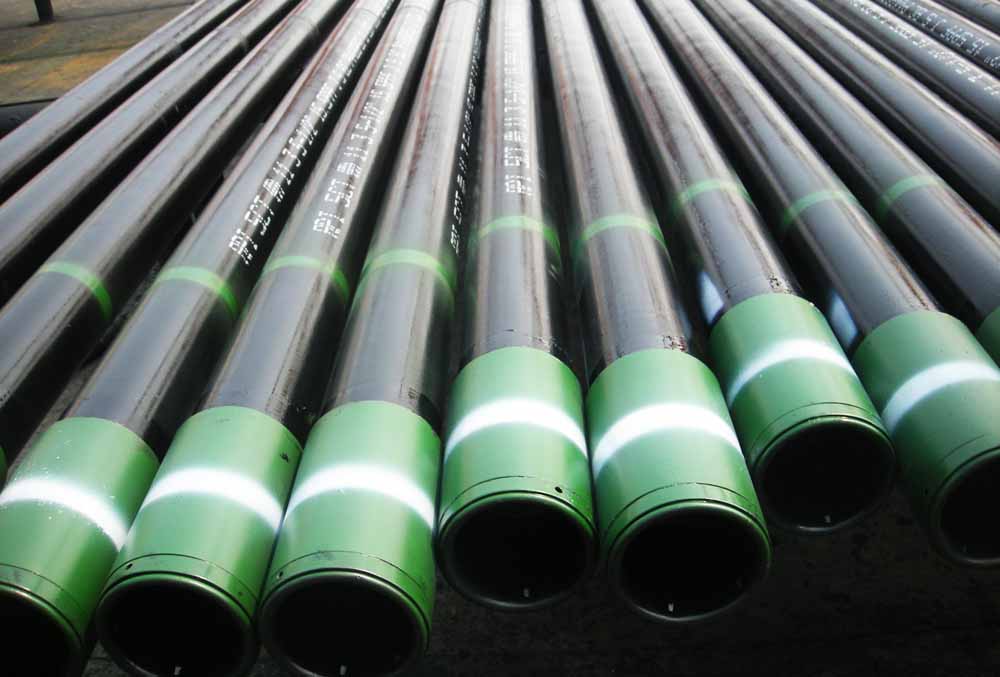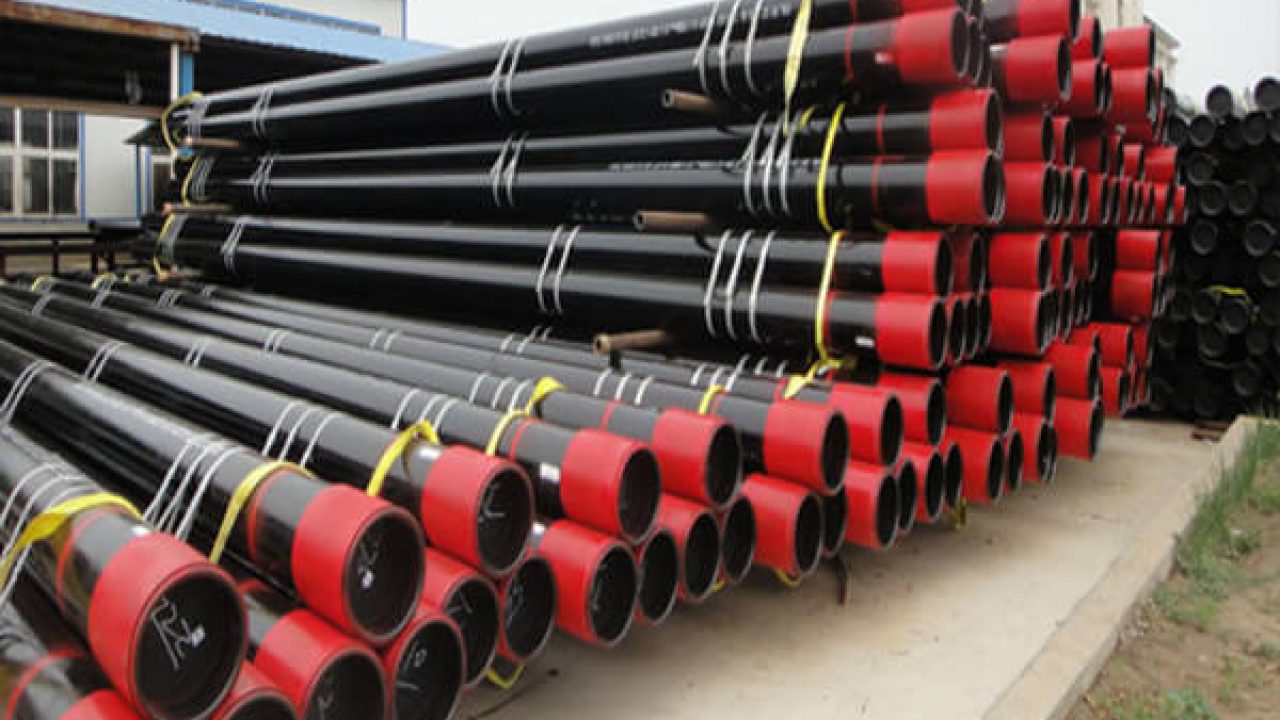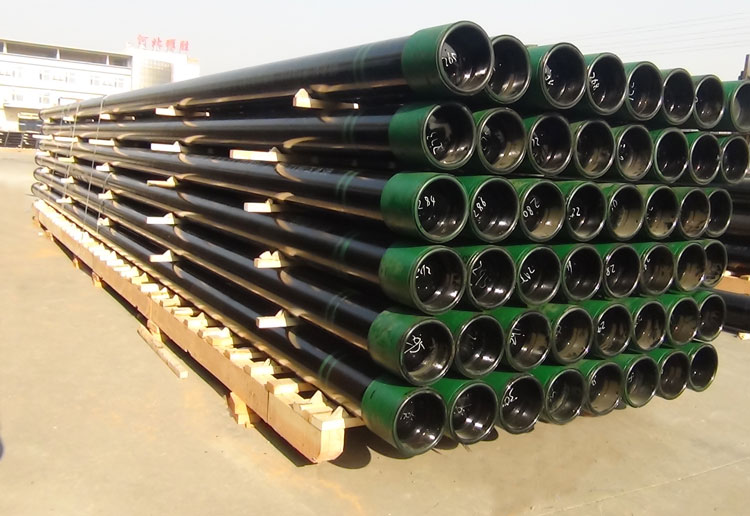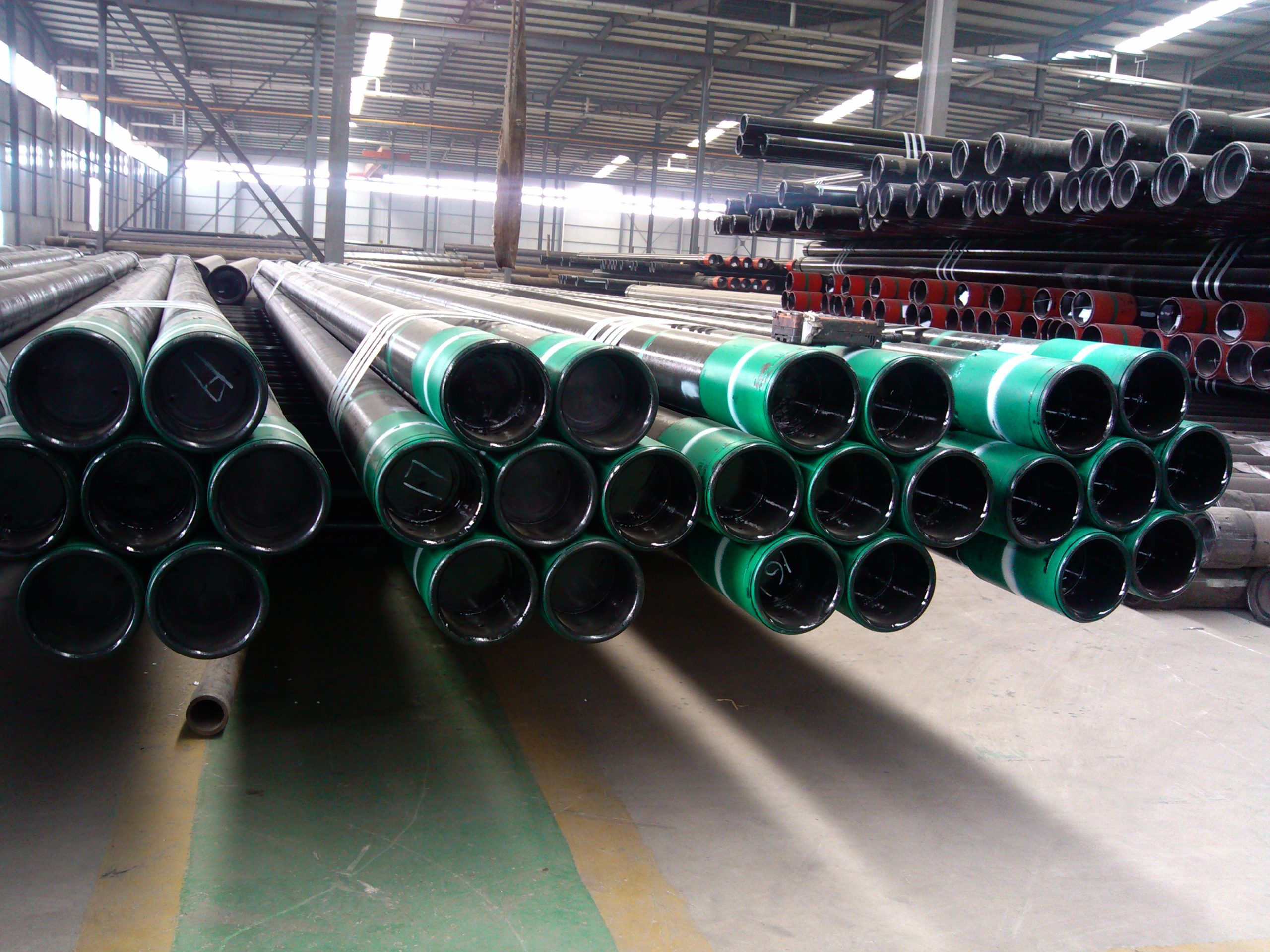Diferencias entre las tuberías de carcasa de aceite N80 y L80

Diferencias entre las tuberías de carcasa de aceite API 5CT N80 y L80
Introducción
API 5CT es una especificación para la carcasa y el tubo en la industria del petróleo y el gas., Detalla los requisitos para varios grados de tuberías de acero. N80 y L80 son dos grados de uso común dentro de esta especificación, cada uno con propiedades y aplicaciones distintas. Comprender las diferencias entre estos dos grados es crucial para seleccionar la tubería apropiada para condiciones específicas de perforación y producción.
Composición química
N80
Las tuberías de carcasa N80 están hechas de acero al carbono con un nivel moderado de elementos de aleación para proporcionar un equilibrio de resistencia y dureza. La composición química típica incluye:
| Elemento | Composición (%) |
|---|---|
| Carbón (c) | 0.28-0.40 |
| Manganeso (Minnesota) | 1.25-1.60 |
| Fósforo (PAG) | 0.030 máximo |
| Azufre (S) | 0.030 máximo |
| Silicio (Y) | 0.20-0.35 |
L80
Las tuberías de carcasa L80 también están hechas de acero al carbono, pero generalmente contienen niveles más altos de elementos de aleación para mejorar sus propiedades mecánicas y resistencia a la corrosión. La composición química típica incluye:
| Elemento | Composición (%) |
|---|---|
| Carbón (c) | 0.25-0.48 |
| Manganeso (Minnesota) | 0.45-1.90 |
| Fósforo (PAG) | 0.030 máximo |
| Azufre (S) | 0.030 máximo |
| Cromo (cr) | 0.25-1.25 |
| Níquel (En) | 0.25 máximo |
| Cobre (Cu) | 0.25 máximo |
| Silicio (Y) | 0.20-0.35 |
Propiedades mecánicas
N80
Las propiedades mecánicas de las tuberías de carcasa N80 están diseñadas para garantizar la durabilidad y la confiabilidad en condiciones operativas moderadas. Las propiedades mecánicas típicas incluyen:
- Resistencia a la tracción: 689-896 MPa (100-130 ksi)
- Fuerza de producción: Mínimo 552 MPa (80 ksi)
- Alargamiento: Mínimo 15% en 2 pulgadas
L80
Las tuberías de carcasa L80 tienen propiedades mecánicas mejoradas, haciéndolos adecuados para aplicaciones más exigentes, incluyendo entornos de servicio agrio. Las propiedades mecánicas típicas incluyen:
- Resistencia a la tracción: 655-885 MPa (95-128 ksi)
- Fuerza de producción: Mínimo 552 MPa (80 ksi)
- Alargamiento: Mínimo 15% en 2 pulgadas
- Dureza: Máximo 23 HRC para L80-1 y 25 HRC para L80-9CR y L80-13CR
Tratamiento térmico
N80
Las tuberías de carcasa N80 generalmente se someten a un proceso de tratamiento térmico normalizador para refinar la estructura del grano y mejorar la tenacidad y la fuerza. Los dos procesos de tratamiento térmico comunes para N80 son:
- N80-1: Normalizado
- N80Q: Apagado y templado
L80
Las tuberías de carcasa L80 generalmente se enfrentan y templan para lograr las propiedades mecánicas deseadas y para mejorar su resistencia al agrietamiento del estrés por sulfuro (CSS) En entornos de servicio agrio. También hay diferentes tipos de tuberías L80 en función de su tratamiento térmico y elementos de aleación.:
- L80-1: Apagado y templado
- L80-9Cr: Apagado y templado con 9% Cromo
- L80-13Cr: Apagado y templado con 13% Cromo
Aplicaciones
N80
Las tuberías de carcasa N80 se utilizan en diversas operaciones de perforación y producción donde se requieren resistencia y tenacidad moderadas. Son adecuados para:
- Pozos estándar de petróleo y gas
- Pozos de profundidad moderados
- Pozos sin una presencia significativa de gas agrio
L80
Las tuberías de carcasa L80 están diseñadas para aplicaciones más exigentes, particularmente donde la resistencia a la corrosión y el agrietamiento por estrés de sulfuro es crucial. Son adecuados para:
- Entornos de servicio agrio
- Pozos más profundos con presiones más altas
- Pozos con sulfuro de hidrógeno significativo (H₂S) presencia
- A alta temperatura y alta presión (HTHP) pozos
Costo
N80
Las tuberías de carcasa N80 son generalmente menos costosas que L80 debido a su menor contenido de aleación y procesos de tratamiento térmico menos estrictos. Son una opción rentable para operaciones de producción y perforación estándar..
L80
Las tuberías de carcasa L80 son más caras debido a su mayor contenido de aleación y procesos de tratamiento térmico más complejos. El costo adicional está justificado por sus propiedades mecánicas mejoradas y resistencia a la corrosión, haciéndolos adecuados para entornos de perforación más desafiantes.
Resumen
| Propiedad | N80 | L80 |
|---|---|---|
| Composición química | Contenido de aleación moderado | Contenido de aleación más alto, incluyendo cromo |
| Propiedades mecánicas | Resistencia a la tracción: 689-896 MPa<BR>Fuerza de producción: ≥552 MPa<BR>Alargamiento: ≥15% | Resistencia a la tracción: 655-885 MPa<BR>Fuerza de producción: ≥552 MPa<BR>Alargamiento: ≥15%<BR>Dureza: ≤23 HRC (L80-1) o ≤25 hrc (L80-9CR/13CR) |
| Tratamiento térmico | Normalizado o apagado y templado | Apagado y templado |
| Aplicaciones | Pozos estándar, profundidad moderada, No hay gas agrio significativo | Servicio agrio, pozos más profundos, Wells HTHP |
| Costo | menos costoso | Más caro debido a las propiedades mejoradas |
Elegir entre tuberías de carcasa N80 y L80 depende de los requisitos específicos de las operaciones de perforación y producción, incluyendo la presencia de entornos corrosivos, bien profundidad, y condiciones de presión.
Tabla de comparación detallada
Para proporcionar una comparación más clara de lado a lado, Aquí hay una tabla detallada que resalta las diferencias clave entre los tubos de carcasa N80 y L80:
| Atributo | N80 | L80 |
|---|---|---|
| Composición química | Contenido de aleación moderado, principalmente carbono y manganeso | Contenido de aleación más alto, incluyendo cromo (cr), Níquel (En), y cobre (Cu) |
| Tratamiento térmico | Normalizado (N80-1) o apagado y templado (N80Q) | Apagado y templado (L80-1), con tratamientos específicos para L80-9CR y L80-13CR |
| Resistencia a la tracción | 689-896 MPa (100-130 ksi) | 655-885 MPa (95-128 ksi) |
| Fuerza de producción | Mínimo 552 MPa (80 ksi) | Mínimo 552 MPa (80 ksi) |
| Alargamiento | Mínimo 15% en 2 pulgadas | Mínimo 15% en 2 pulgadas |
| Dureza | Típicamente no especificado | Máximo 23 CDH (L80-1) o 25 CDH (L80-9CR y L80-13CR) |
| Resistencia a la corrosión | Moderado, No es adecuado para servicio agrio | Alto, Adecuado para servicio agrio y entornos H₂S |
| Costo | Más bajo debido a la aleación más simple y el tratamiento térmico | Más alto debido a la aleación compleja y el tratamiento térmico |
| Aplicaciones | Pozos estándar de petróleo y gas, pozos de profundidad moderados, entornos que no son de Sour | Entornos de servicio agrio, pozos más profundos, pozos de alta temperatura y alta presión, Pozos con presencia de H₂s |
Conclusión
Seleccionar el grado de tubería de carcasa correcta es fundamental para el éxito y la seguridad de las operaciones de perforación y producción en la industria del petróleo y el gas. Aquí hay un resumen para ayudar a tomar una decisión informada.:
- N80 tuberías de carcasa: Adecuado para operaciones de perforación estándar donde se requieren resistencia y tenacidad moderadas. Son rentables y apropiados para entornos no de Sour y profundidades de pozo moderadas.
- L80 tuberías de carcasa: Diseñado para entornos desafiantes, incluyendo aquellos con gas agrio (H₂S) presencia. Ofrecen resistencia a la corrosión superior y propiedades mecánicas, haciéndolos ideales para más profundos, alta presión, y pozos de alta temperatura.
Al comprender las diferencias en la composición química., propiedades mecánicas, tratamiento térmico, aplicaciones, y costos, Los operadores pueden elegir el grado de tubería de revestimiento más apropiado para garantizar la integridad del pozo y la eficiencia operativa..






